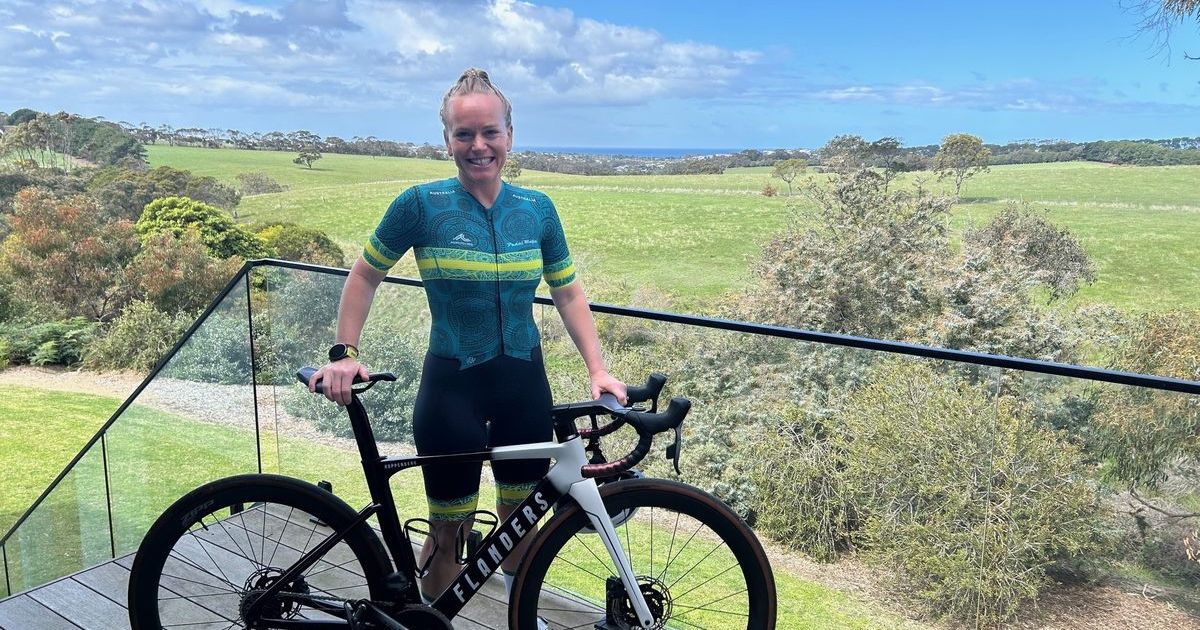THE HIDDEN Tresures of the Surf Coast

From an avid surfer to a passionate bone excavator, Yestin Griffiths has discovered life from millions of years ago across the Surf Coast and is sharing his fossil finding secrets. Photos (and cover): MICHAEL CHAMBERS
The Surf Coast beaches draw large crowds every summer to swim and frolic on the sand, oblivious to the hidden treasures embedded in the rocks and cliff faces above the shoreline.
Yestin Griffiths knows only too well the history preserved there; fossils dating back 26 million years, and with every tooth, vertebrae and bone discovered, his desire to share the experience deepened.
“I grew up on the beach and surf along the coast, I’m a member of the Surf Coast Longboarding Club and also come from a geology background,” Yestin said.
“I was with the Geelong Gem and Mineral Club and was just an amateur fossil collector. It all began with a school project for my daughters, I found a few things that the Melbourne Museum was excited about and I’ve ended up working up there every Friday.”
Yestin said his girls were studyingdinosaurs and prehistoric animals at primary school so he thought it would be a good opportunity to take them to look for fossil shells.
“I thought I could explain how fossils come to be, and when we were leaving I picked up my bag and directly underneath was a fossil. It turned out to be some Mammalodontidae vertebrae dating back around the 26 million mark,” he said.
“A week later I found another slab with nine or 10 pieces in the slab and it just got me hooked. Every time I go for a surf I go for a bit of a walk and have a look along the beach.
“The thing about the Surf Coast is that if we get a bit of a hide tide and big swell it can move things around a little and you start finding things.”
With a bounty including several skulls, vertebrae, ribs and teeth from multiple creatures, including the Isurus desori (narrow toothed Mako shark) dating back 24-26 million years, Yestin said he decided to post his finds online.
“The museum’s palaeontologists have ‘Fossil Friday’, so I thought rather than posting willy-nilly I’d post regularly,” he said.
“The aim will be to see if the posts on the Surf Coast Community Noticeboard get enough interest and then I’ll do a separate page just on fossils from the Surf Coast.
“A lot of people find things and take them home thinking they’ll get in touch with the museum, but three years down the line it’s still in a drawer and they’ve done nothing about it.
“This would then hopefully become a forum where people can get in touch with us if they’ve found something and we can give them responses directly.”
While his posts have attracted a lot of attention with people blown away by the rare findings, Yestin reiterated the importance of ensuring people stayed safe while searching.
“We’ve got a new lot of people, field naturalists or “citizen scientists” who are going along the Surf Coast and finding these interesting things: whale vertebrae and ribs and teeth,” he said.
“A huge part of it is the safety aspect. We don’t want people going up to the cliff and digging into them, a lot of people have contacted me and asked where they can look for fossils.
“I’m trying to promote safety. The cliffs are very unstable from Jan Juc through to Point Addis. Most of the fossils are found around the shore platforms and in rocks, even in some of the rubble, it’s just about getting your eye in to try and find them.”
Yestin said it’s an indescribable feeling extracting fossils at the museum.
“This is the thing that’s blown me away since I’ve been working there, I’m working on the fossils I’ve found and I’m the first person to see this stuff in millions of years.
“Working in this field also it makes you think about your significance in the world and that sort of thing. We’re here for a speck of time, these animals we’re taking out of the rock are millions of years old, so it’s very humbling.”
Yestin said he hopes to awaken people to the rich history within the rocks and cliffs and share the unique experiencing of discovering fossils.
“I thought it would be good to educate people. A lot of people approach me when I’m at the beach and ask me what I’m doing and they’re surprised fossils are there.
“A lot of people know about the surf history and the history of Torquay but this is another layer that not many people know about; some of the cliffs go back 26 million years.”
See page 69 for the Australian National Surfing Museum’s Fossil Beach exhibition.
“ A lot of people know about the surf history and the history of Torquay but this is another layer that not many people know about; some of the cliffs go back 26 million years.”

















